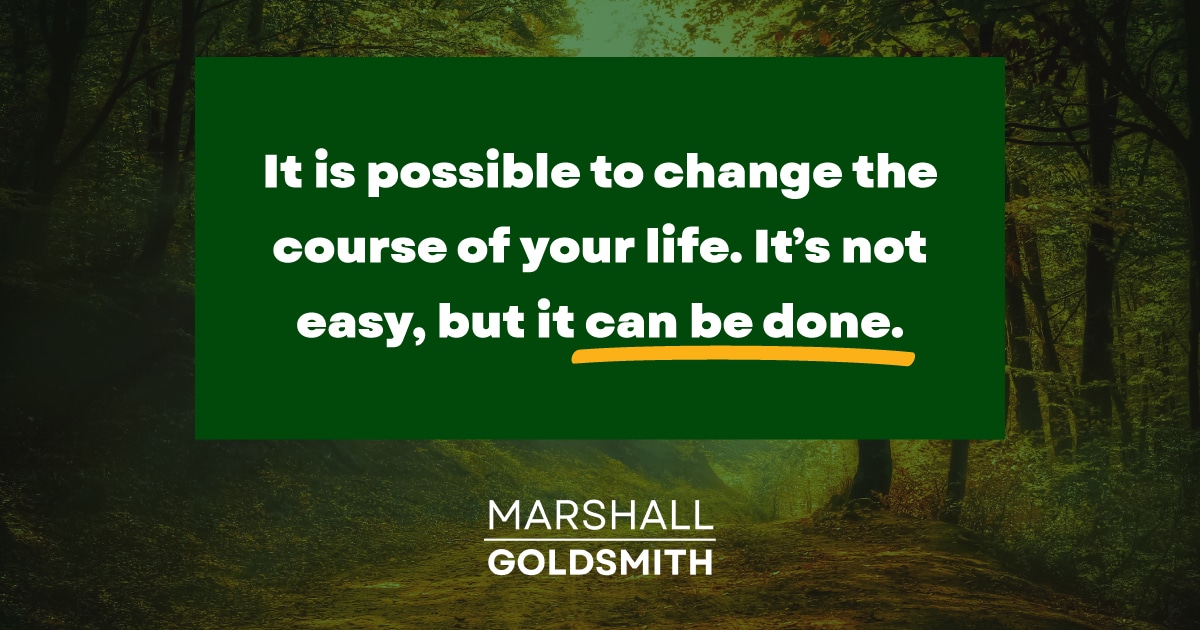Playing Favorites By Marshall Goldsmith There’s a reason I devote...
I recently wrote a foreword for Anju Jain’s book, “Step Up: How Women Can Perform Better for Success.” As the HR lead for Caterpillar in India and the founder of Chai Pe, an organization that focuses on developing women professionals, Anju has a fascinating perspective on women’s issues. In the following conversation, we talk about some of the book’s key messages.
Marshall Goldsmith: When we first talked about the project, I started with a simple question: “Why write a book about this subject?”
Anju Jain: It is needed. Half of the world’s population is women, yet not even one-eighth of them make it to leadership roles. Why is that so? Aren’t women capable? Don’t they have aspirations?
We all know the answers. While we recognize the importance of women in the workforce, we now need to talk about how to make that a reality. The book offers practical solutions for women, men, organizations, governments and the media to step up in this conversation and change the face of women in leadership.
MG: What makes the book different and interesting? How does it help the reader?
AJ: Well I am sure all authors thinks their books are unique or different somehow! I think so too! “Step Up” takes a holistic approach by highlighting two facts. One, it emphasizes that women are active individuals who are capable of affecting change and two, that they are part of a larger context wherein others also need to change along with them.
To that end, my book discusses how women can on-board their stakeholders to their vision. I show this with many anecdotes that I have observed, as well as stories shared by leaders across many industries.
MG: In the book, you talk about women “aligning their circles.” What is that about?

AJ: Actually, this is the crux of the book. As aforementioned, I posit that women are surrounded by an environment – by their families, organizations and networks in their eco-systems. I refer to each of these units as circles around the individual woman. To succeed in any of her pursuits – at home or at work – she has to align each of these circles to her aspirations. If she can do this, she can pave the path for her success. In the absence of this alignment, her goals will remain farfetched.
MG: What can men glean from this book?
AJ: Plenty! First and foremost, a recognition that they are vital to women’s success. At a personal level, with both partners working, men’s support at home becomes imperative. Whether it is about managing the home or raising children, the chores have to be shared. No one person can do it all. This involvement is not just important from the standpoint of offering physical help, it also leads to far-reaching benefits to the family. There is a huge body of research to show that men’s involvement has a positive impact on the development of their children and their marital relationships as well. Specifically, children of involved fathers are cognitively, emotionally and socially ahead as compared to children of uninvolved fathers. Men and women report greater marital satisfaction when the former are engaged at home.
At work, men will discover how they can step up to create change within their organizations. By being intentional and advocating for the diversity women bring, men can facilitate the removal of unconscious biases and create an inclusive culture within their teams and the larger corporate culture. The book offers simple concrete ideas to do so.
MG: What do you think are the biggest challenges impeding women’s growth?
AJ: There are multiple issues in the works. There are societal expectations, organizational barriers and self-imposed constraints too. And as you know all these are interrelated.
Because of societal norms and stereotypes, we form an opinion on what women and men can and cannot do. These teachings form the basis for our behaviour. Women see themselves as a primary caretakers and not as primary breadwinners. They see themselves in a subservient versus in an assertive light. These social expectations condition both women and men to behave in specific ways. Needless to say, these internalizations manifest in professional settings and elsewhere. Relatedly, we have witnessed how marriage, maternity and mobility impact women’s careers. A lack of a supportive infrastructure at home, work or outside, can make women exit their
professions too early in the game.
But this is not to say that women cannot overcome this. There are many success stories around us. Women can do a lot to take control of their lives. They have to align their circles.
MG: Are the challenges among Indian women similar to those women are facing in the West?

Yes, I believe so. At the end of the day, women are women, and men are men. Human behaviour is consistent. The only difference I would say is that the regions may be at different points on the same continuum. And that is because of the external support and focus this issue gets in their specific region. The representation of women in the workforce is higher in Europe and North America. Within Asia, China takes the lead.
However, even in regions where women are ahead, similar challenges prevail when they are less represented in the senior ranks. And the underlying reasons remain the same too.
MG: There is a lot of talk on mentoring among women. What is your view, and do you think mentoring is critical to advance their career?
Any interaction – formal or informal – can add value. You would agree that, as in the coaching realm, it is up to the seeker to leverage it. Mentorship within the corporate context can also do the same. But it cannot be directly linked to women’s career advancement. It is an enabler. So to place undying emphasis on mentoring isn’t going to directly change the representation scorecard. In fact, women who are mentored are not necessarily making it up there.
I believe mentoring is nice to have and can be handy during the early phase of one’s career. At the time when one is trying to navigate the maze and keen to figure out the protocols and norms of interactions to play the game right. It is less of a value add when you have already crossed the big challenges and may have made irreversible mistakes in the process.
And this is true for both women and men.
At the same time I also am of the opinion that we need to move away from reinforcing the idea that women need to be mentored. Why instill a belief that they need support without which they cannot succeed? I would rather they recognize that they control their future. The biggest help women need is a hand at home so they have some actual undivided time to focus on their work and their career. Given that breather, women can figure it all out. They can find a mentor or any other enabler should they want to.

Adding Too Much Value Won’t Get You There By Marshall...
C-Suite Master Class: No, But, However By Marshall Goldsmith Continuing...
The Doerr Institute: Expanding the Market for Coaches By Marshall...
Making Leadership Development Part of the College Degree at Rice...
Sanyin Siang – Winner of the Thinkers50 Marshall Goldsmith Coaching...
Thinkers50 Marshall Goldsmith Distinguished Achievement Award in Coaching – Nominees...
Leading with Influence: What Is Influence360°? By Marshall Goldsmith Founder...
Are You a Dominator, Manipulator, Persuader or Influencer? By Marshall...
Leading with Influence: Redefining Modern Influence Part 2 By Marshall...
My mission is simple. I want to help successful people achieve positive, lasting change and behavior; for themselves, their people, and their teams. I want to help you make your life a little better. With four decades of experience helping top CEOs and executives overcome limiting beliefs and behaviors to achieve greater success, I don’t do this for fame and accolades. I do this because I love helping people!
As an executive educator and coach, I help people understand how our beliefs and the environments we operate in can trigger negative behaviors. Through simple and practical advice, I help people achieve and sustain positive behavioral change.